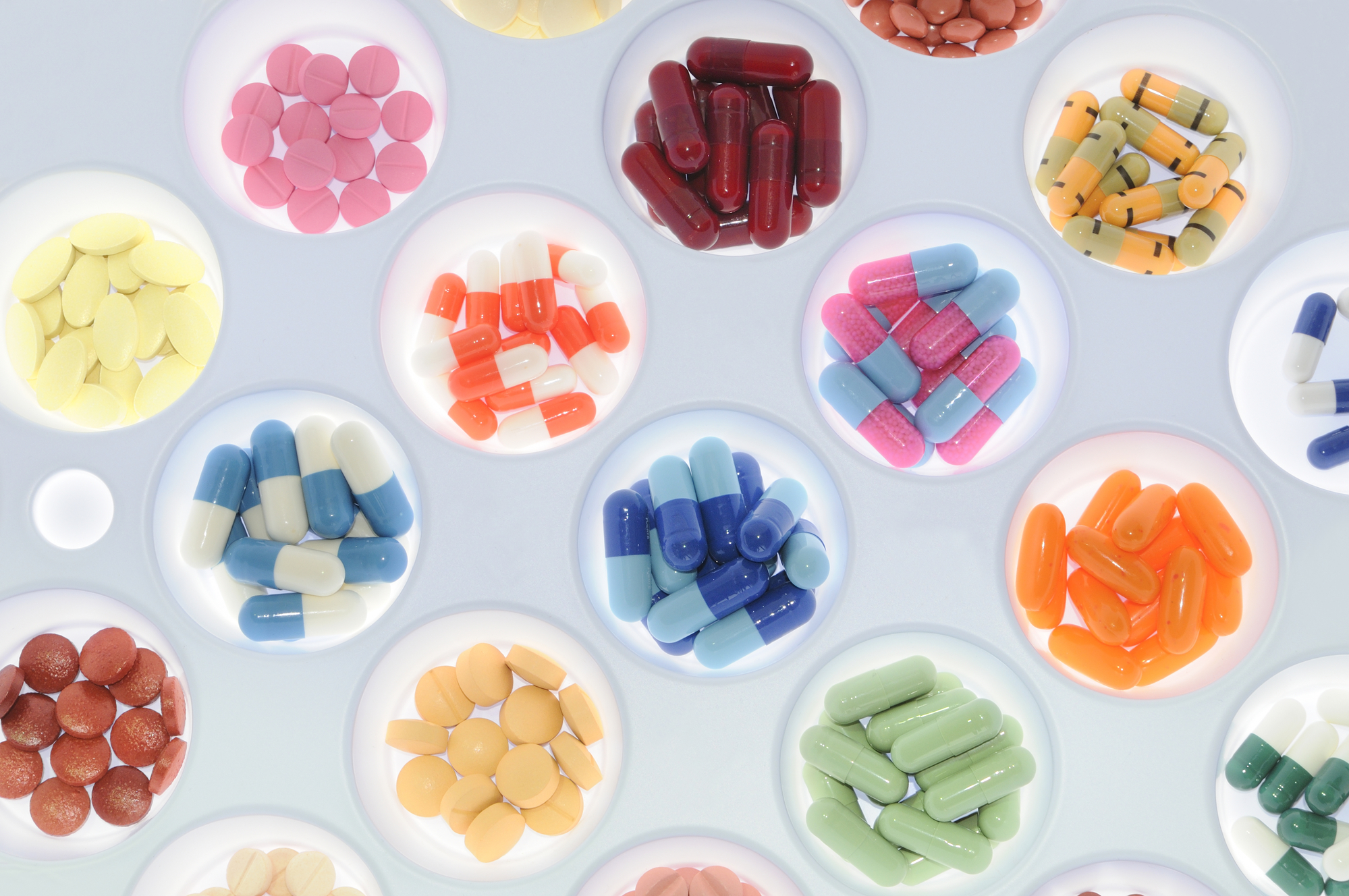

According to the Centers for Disease Control and Prevention, about 13 percent of all Americans report taking antidepressants, a stark increase from three decades ago when barely one in 50 Americans took such medications. At the same time, antibiotic resistance in infectious bacteria is on the rise, causing about 700,000 deaths around the world every year. That number is expected to scorch up to 10 million deaths a year by 2050 if current models hold true.
While correlation never automatically equals causation, a new study suggests these two trends may be more related to one another than we thought. Findings published in the journal Environment International show that the key ingredient of some common antidepressants can induce genetic mutations in E. coli that increase antibiotic resistance, fueling worries that increased and unregulated use of antidepressants could exacerbate the rise of superbugs.
“We knew that antibiotics as well as other antimicrobials such as triclosan, and even metals, could select for antibiotic resistance,” says Patrick McNamara, an environmental engineer at Marquette University who wasn’t involved in the study. “But this paper sheds light on the possibility of other medications, that were not designed to have impacts on bacteria, inducing antibiotic resistance.”
There’s a lot of work yet to be done to show that antidepressants actually influence bacterial behavior in real-world settings, and there’s certainly no evidence that those in need of antidepressants shouldn’t take them. Indeed, more pressing concerns include the over-prescribing of antibiotics themselves and their rampant use in meat production. But the results are a reminder of just how little we know about how the medications we rely on affect the world around us.
The investigation focused on the drug fluoxetine, a selective serotonin reuptake inhibitor (SSRI) that addresses depression by boosting levels of the chemical serotonin. Fluoxetine, better known by the brand name Prozac, is often prescribed to help patients recover from depression, obsessive-compulsive disorder, bulimia, and panic disorders. But although it’s been on the medical market since 1986, its effect on the environment has rarely been studied.
For years, scientists have raised alarms about the potential for drug compounds that reenter the environment after exiting our bodies to interact with microbes. Bacteria that are exposed to antibiotics are supposed to, well, die—but this exposure also encourages the evolution of mutations that resist antimicrobial toxins, because only resistant strains survive and keep spreading. The more drugs that filter out into the environment, the more resistant bacteria populations become to our antibiotics, which could eventually give rise to superbugs which we have no effective ways to treat.
About 11 percent of a fluoxetine dose given to a patient runs through the body and exits through the urine unchanged, going straight to the environment via sewer systems. While fluoxetine and other SSRIs are not antibiotics, we know very little about how they might affect bacterial populations. Previous studies have indicated that SSRIs can both augment and reverse the antimicrobial activity of antibiotics against bacterial infections.
To investigate how this might relate to antibiotic resistance, a team of researchers at the University of Queensland in Australia exposed E. coli populations to various doses of fluoxetine in the lab. E. coli was chosen thanks to its predominance in the human gut flora and in waterway environments within and around communities, as well as its high sensitivity to antibiotics.
Tests showed that 30 days of exposure to fluoxetine increased the rate of genetic mutations in the E. coli species’ efflux pumps, which push toxins (like antibiotics) out of the cell. Efflux pump mutations are a common driver of antibiotic resistance, and these E. coli cells had evolved efflux pumps that could rapidly vomit out common antibiotics (like chloramphenicol, amoxicillin, and tetracycline) before they caused any real harm. Larger doses of fluoxetine created faster mutation rates for the bacteria.
Although a study like this might raise concerns, there are huge caveats to consider. For one, the tests occurred in a laboratory setting, using extraordinarily high concentrations of fluoxetine. And the research is limited to just one SSRI’s effects on just one species of bacteria. Follow-up studies will have to test animal models under realistic conditions, and preferably using multiple types of drugs and bacteria species (like MRSA and C. difficile), to demonstrate whether these antidepressants contribute to the problem of antibiotic resistance in real-world conditions.
While there’s a red flag here worth studying, there’s not enough data yet to draw conclusions or make strong changes to drug policies. Paul Terry, an epidemiologist at the University of Tennessee who was not involved with the study, believes the associations observed in this study and others like it are of some interest, but right now “it’s all just speculation as to how it might potentially influence human health. I am fairly confident that there is not enough evidence to warrant any change in clinical practice related to the use of SSRIs based on these findings,” citing a dearth of studies overall, a glaring lack of studies in humans specifically, and the dose-dependent nature of the associations observed. He’s particularly cautious about endorsing any actions that would detract from the “more clinically relevant goal of effectively treating depression in suffering individuals.”
One near-term solution that could be worth pursuing, says McNamara, is to “encourage patients to not flush drugs, but rather return unused drugs to drug take-back programs or to throw them away.” Even if we don’t fully understand the effects, there’s no question we should all strive to minimize the drugs that end up in our water, whether they’re encouraging antibiotic resistance or not.